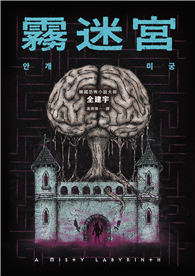| FindBook |
有 1 項符合
Orphans的圖書 |
 |
Orphans 作者:Tanzer,Ben 出版社:Northern Illinois Univ Pr 出版日期:2013-11-01 語言:英文 規格:12.7 x 20.3 x 1.3 cm / 普通級/ 單色印刷 |
| 圖書館借閱 |
| 國家圖書館 | 全國圖書書目資訊網 | 國立公共資訊圖書館 | 電子書服務平台 | MetaCat 跨館整合查詢 |
| 臺北市立圖書館 | 新北市立圖書館 | 基隆市公共圖書館 | 桃園市立圖書館 | 新竹縣公共圖書館 |
| 苗栗縣立圖書館 | 臺中市立圖書館 | 彰化縣公共圖書館 | 南投縣文化局 | 雲林縣公共圖書館 |
| 嘉義縣圖書館 | 臺南市立圖書館 | 高雄市立圖書館 | 屏東縣公共圖書館 | 宜蘭縣公共圖書館 |
| 花蓮縣文化局 | 臺東縣文化處 |
|
|
圖書介紹 - 資料來源:博客來 評分:
圖書名稱:Orphans
內容簡介
'With Orphans, Ben Tanzer continues his ongoing literary survey of the 21st Century male psyche, yet does so with a newfound twist, contemporary themes set in a world that is anything but. In this dystopian tale of a future Chicago, workers are sent off to sell property on Mars to those who can afford to leave, leaving what's left to those who have little choice but to make do with what's left behind: burnt out neighborhoods, black helicopters policing the streets, flash mobs, the unemployed in their scruffy suits, robots taking the few jobs that remain, and clones who replace those workers who do find work so that a modicum of family stability can be maintained. It is a story about the impact of work on family. How work warps our best intentions. And how everything we think we know about ourselves looks different during a recession. This idea is writ large in the world of Orphans, where recession is all we know, work is only available to the lucky few, and this lucky few not only need to fear being replaced on the job, but in their homes and beds.It is also a story about drugs, surfing, punk music, lost youth, parenting, sex, pop culture as vernacular, and a conscious intersection of Death of a Salesman or Glengarry Glen Ross with the Martian Chronicles. Looking to the genre of science fiction has allowed Tanzer to produce something new and fresh, expanding both his literary horizons, and the potential market for his work. Tanzer also looks to the story of Bartleby the Scrivener with Orphans, and the question of what are we allowed as workers, and expected to be, or do, when work is fraught with desperation. Ultimately, Orphans is intended to be a contemporary story about manhood and what it means in today's world, told from the perspective of work and family, and how any of us manage the parameters that family and work produce; but it's a story told in a futuristic world, where our greatest fears are in fact already realized, because there isn't enough of anything, and we are all too easily replaced'--
|





![塔木德:猶太人的致富聖經[修訂版]:1000多年來帶領猶太人快速累積財富的神祕經典 塔木德:猶太人的致富聖經[修訂版]:1000多年來帶領猶太人快速累積財富的神祕經典](https://media.taaze.tw/showLargeImage.html?sc=11100697818)




